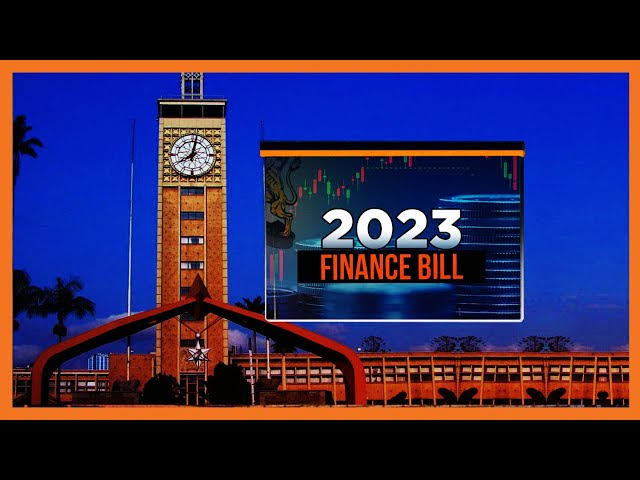
Finance Act 2023 Overturned: Brace Yourself for Major Changes in Salaries, Fuel Prices, and Taxes.


The recent nullification of Kenya’s Finance Act 2023 has thrown a wrench into the government’s fiscal strategy, disrupting the implementation of critical tax policies designed to boost revenue and address economic challenges. Here’s an exploration of the major tax measures affected by this decision and their potential implications.
Value Added Tax (VAT) and Levies
The Finance Act 2023 introduced significant changes to VAT, particularly increasing VAT on petroleum products (excluding liquefied petroleum gas) from 8% to 16%, which had a substantial impact on fuel prices. The Act also zero-rated VAT on:
– Liquefied petroleum gas (LPG)
– Locally assembled and manufactured mobile phones
– Motorcycles of tariff heading 8711.60.00
– Electric bicycles
– Solar and lithium-ion batteries
– Electric buses of tariff heading 87.02
– Inputs or raw materials for manufacturing animal feeds
– Bioethanol vapour (BEV) stoves (HS Code 12.00)
– Locally purchased tea and coffee for value addition prior to exportation, subject to approval by the Commissioner General
Excise Duty
The Act proposed changes in excise duties, such as reducing the rates for telephone and internet data services from 20% to 15% and money transfer services by banks and other financial institutions from 20% to 15%. However, it increased excise duties for money transfer services by cellular phone service providers from 12% to 15%, and for betting, gaming, prize competitions, and lotteries from 7.5% to 12.5%. New excise duties were also introduced on various imported items, including fish, sugar, cement, and furniture.
Mandatory Housing Levy
A mandatory housing levy was introduced, requiring both employers and employees to contribute 1.5% of the employee’s gross salary to the National Housing Development Fund. However, this levy was later anchored on the Affordable Housing Act, 2024, which means it will not be affected by the nullification.
Income Tax Changes
The Finance Act 2023 introduced new income tax rates, including a 32.5% rate for monthly incomes between KSh500,000 and KSh800,000, and a 35% rate for incomes exceeding KSh800,000. Travel allowances provided to employees for official duties were exempted from taxation if they adhered to the approved standard mileage rate. Club entrance and subscription fees paid by employers on behalf of employees were classified as taxable benefits, and a 15% relief on contributions to post-retirement medical funds was introduced, capped at KSh60,000 per annum.
Digital Content Monetisation
Digital content monetisation was subjected to withholding tax at a rate of 5% for residents and 20% for non-residents without a permanent establishment in Kenya.
Compliance and Administrative Changes
The Act mandated that expenditures or losses would not be deductible unless invoices were generated through the electronic tax invoicing management system (e-TIMS), effective January 1, 2024. Additionally, withholding tax was to be remitted to the Kenya Revenue Authority within five days of payment.
Corporate and Other Taxes
The Act imposed a 15% tax on repatriated income for non-residents with a permanent establishment in Kenya and reduced the Corporate Income Tax (CIT) rate from 37.5% to 30%, effective January 1, 2024. The upper threshold for turnover tax was reduced from KSh50 million to KSh25 million, with an increase in the tax rate from 1% to 3%. A new tax of 3% was introduced on income derived from the transfer or exchange of digital assets.
Withholding Tax
The Finance Act 2023 introduced withholding tax on payments for use of immovable property, reduced from 10% to 7.5%, and on payments for sales promotion, marketing, and advertising services. It also included rental income received on behalf of the owner of premises, digital content monetization, and payments related to rental income.
Advance Tax
Advance tax rates were reviewed for various vehicles, including vans, pickup trucks, prime movers, trailers, lorries, saloons, station wagons, mini-buses, buses, and coaches.
Rental Income and Mortgage Interest Claims
Residential rental income tax (MRI) rate was reduced from 10% to 7.5%. Individuals were allowed to claim mortgage interest expense up to KSh300,000 per year incurred on money borrowed from a co-operative society.
In conclusion,the nullification of the Finance Act 2023 by the Court of Appeal has led to significant uncertainty in Kenya’s tax landscape. The government’s aim to enhance revenue collection and improve fiscal policy through these measures has been disrupted, potentially impacting government revenue and fiscal stability. Without an appeal, the government will revert to the Finance Act 2022.
Article By Suzy Nyongesa.
